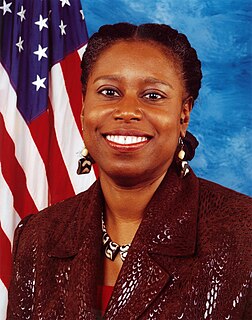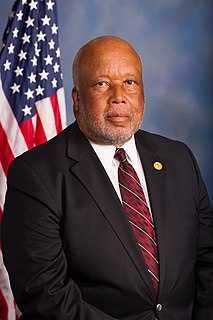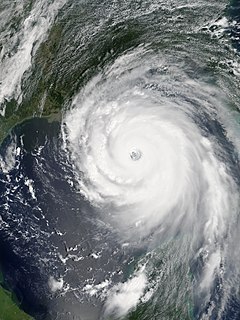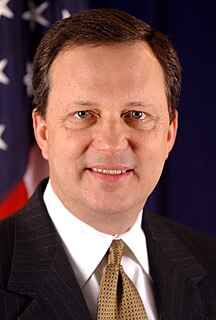Related Research Articles

The Federal Emergency Management Agency (FEMA) is an agency of the United States Department of Homeland Security (DHS), initially created under President Jimmy Carter by Presidential Reorganization Plan No. 3 of 1978 and implemented by two Executive Orders on April 1, 1979. The agency's primary purpose is to coordinate the response to a disaster that has occurred in the United States and that overwhelms the resources of local and state authorities. The governor of the state in which the disaster occurs must declare a state of emergency and formally request from the President that FEMA and the federal government respond to the disaster. The only exception to the state's gubernatorial declaration requirement occurs when an emergency or disaster takes place on federal property or to a federal asset—for example, the 1995 bombing of the Alfred P. Murrah Federal Building in Oklahoma City, Oklahoma, or the Space Shuttle Columbia in the 2003 return-flight disaster.

Kathleen Babineaux Blanco was an American politician who served as the 54th Governor of Louisiana from January 2004 to January 2008. A member of the Democratic Party, she was the first and, to date, only woman elected as the state's governor.

Cynthia Ann McKinney is an American politician and assistant professor at North South University, Bangladesh. As a member of the Democratic Party, she served six terms in the United States House of Representatives. She was the first African American woman elected to represent Georgia in the House. She left the Democratic Party and ran in 2008 as the presidential candidate of the Green Party of the United States. She ran for Vice-President in 2020 after the Green Party of Alaska formally nominated her and draft-nominated Jesse Ventura for President.

Jefferson Bingham Miller is an American politician who served as the U.S. representative for Florida's 1st congressional district from 2001 to 2017. A member of the Republican Party, his district included all of Escambia County, Santa Rosa County, Okaloosa County, Walton County, Holmes County and Washington County.
A select or special committee of the United States Congress is a congressional committee appointed to perform a special function that is beyond the authority or capacity of a standing committee. A select committee is usually created by a resolution that outlines its duties and powers and the procedures for appointing members. Select and special committees are often investigative, rather than legislative, in nature though some select and special committees have the authority to draft and report legislation.

Bennie Gordon Thompson is an American politician serving as the U.S. representative for Mississippi's 2nd congressional district since 1993. A member of the Democratic Party, Thompson has been the chair of the Committee on Homeland Security since 2019 and from 2007 to 2011. He was both the first Democrat and the first African American to chair the committee. He is the dean of Mississippi's congressional delegation.
The Joint Inquiry into Intelligence Community Activities before and after the Terrorist Attacks of September 11, 2001 is the official name of the inquiry conducted by the Senate Select Committee on Intelligence and the House Permanent Select Committee on Intelligence into the activities of the U.S. Intelligence Community in connection with the September 11, 2001 attacks. The investigation began in February 2002 and the final report was released in December 2002.

Michael Chertoff is an American attorney who was the second United States Secretary of Homeland Security to serve under President George W. Bush. Chertoff also served for one additional day under President Barack Obama. He was the co-author of the USA PATRIOT Act. Chertoff previously served as a United States Circuit Judge of the United States Court of Appeals for the Third Circuit, as a federal prosecutor, and as Assistant U.S. Attorney General. He succeeded Tom Ridge as U.S. Secretary of Homeland Security on February 15, 2005.

Hurricane Katrina was a large and destructive Category 5 Atlantic hurricane that caused over 1,800 fatalities and $125 billion in damage in late August 2005, especially in the city of New Orleans and the surrounding areas. It was at the time the costliest tropical cyclone on record and is now tied with 2017's Hurricane Harvey. The storm was the twelfth tropical cyclone, the fifth hurricane, and the third major hurricane of the 2005 Atlantic hurricane season, as well as the fourth-most intense Atlantic hurricane on record to make landfall in the contiguous United States.

Michael DeWayne Brown is an American attorney and former government official who served as the administrator of the Federal Emergency Management Agency (FEMA) from 2003 to 2005. He joined FEMA as general counsel in 2001 and became deputy director the same year. Appointed in January 2003 by President George W. Bush to lead FEMA, Brown resigned in September 2005 following his controversial handling of Hurricane Katrina. Brown currently hosts a radio talk show on 630 KHOW in Denver, Colorado.

Criticism of the government response to Hurricane Katrina consisted primarily of condemnations of mismanagement and lack of preparation in the relief effort in response to Hurricane Katrina and its aftermath. Specifically, there was a delayed response to the flooding of New Orleans, Louisiana.

On Monday, August 29, 2005, there were over 50 failures of the levees and flood walls protecting New Orleans, Louisiana, and its suburbs following passage of Hurricane Katrina and landfall in Mississippi. The levee and flood wall failures caused flooding in 80% of New Orleans and all of St. Bernard Parish. Tens of billions of gallons of water spilled into vast areas of New Orleans, flooding over 100,000 homes and businesses. Responsibility for the design and construction of the levee system belongs to the United States Army Corps of Engineers; the responsibility of maintenance belongs to the local levee boards. The Corps hands components of the system over to the local levee boards upon completion. When Katrina struck on August 29, 2005, the project was between 60–90% complete. Four major investigations were conducted by civil engineers and other experts in an attempt to identify the underlying reasons for the failure of the federal flood protection system. All concur that the primary cause of the flooding was inadequate design and construction by the Army Corps of Engineers.

This article covers the details of the Preparations for Hurricane Katrina, a major category 5 hurricane that devastated parts of New Orleans, Florida, Louisiana, Mississippi, and Alabama, as well as the Hurricane Pam simulation and NWS forecasts that led to the U.S. government's decision to establish a Bipartisan Congressional Committee to investigate the country's preparedness for and response to Hurricane Katrina.

Many representatives of the news media reporting on the aftermath of Hurricane Katrina became directly involved in the unfolding events, instead of simply reporting. Due to the loss of most means of communication, such as land-based and cellular telephone systems, field reporters in many cases became conduits for information between victims and authorities.

The National Weather Service bulletin for the New Orleans region of 10:11 a.m., August 28, 2005, was a particularly dire warning issued by the local Weather Forecast Office in Slidell, Louisiana, warning of the devastation that Hurricane Katrina could wreak upon the Gulf Coast of the United States, and the torrent of pain, misery and suffering that would follow once the storm left the area.

When the Levees Broke: A Requiem in Four Acts is a 2006 documentary film directed by Spike Lee about the devastation of New Orleans, Louisiana following the failure of the levees during Hurricane Katrina. It was filmed in late August and early September 2005, and premiered at the New Orleans Arena on August 16, 2006 and was first aired on HBO the following week. The television premiere aired in two parts on August 21 and 22, 2006 on HBO. It has been described by Sheila Nevins, chief of HBO's documentary unit, as "one of the most important films HBO has ever made." The title is a reference to the blues tune "When the Levee Breaks" by Kansas Joe McCoy and Memphis Minnie about the Great Mississippi Flood of 1927.

Jenniffer Aydin González Colón is a Puerto Rican politician who currently serves as the 20th Resident Commissioner of Puerto Rico. González has served in leadership positions in the New Progressive Party of Puerto Rico (PNP) and in the Republican Party of the United States. These positions included being the chairwoman of the Puerto Rico Republican Party, speaker and minority leader of the House of Representatives of Puerto Rico, and vice-chair of the PNP.
The United States Army Corps of Engineers is involved with a wide spectrum of public works projects: environmental protection, water supply, recreation, flood damage and reduction, beach nourishment, homeland security, military construction, and support to other Governmental agencies. In nineteen (19) different Flood Control Acts since 1917, the United States Congress has authorized the corps to design and build flood protection projects and one risk reduction system in the Greater New Orleans area and throughout the nation.

Subramanian Raja Krishnamoorthi is an Indian-born American businessman and politician serving as the U.S. representative for Illinois's 8th congressional district since 2017. The district includes many of Chicago's western and northwestern suburbs, such as Hoffman Estates, Elgin, Schaumburg, Wood Dale, and Elk Grove Village. He was elected to succeed Tammy Duckworth, who gave up the seat to run for the U.S. Senate. Krishnamoorthi is a member of the Democratic Party and serves on the House Oversight Committee and the House Permanent Select Committee on Intelligence. He is also chair of the Oversight Subcommittee on Economic and Consumer Policy, and serves as an assistant whip.

The National Commission to Investigate the January 6 Attack on the United States Capitol Complex, known colloquially as the January 6 commission, was a proposed commission that would have investigated the 2021 United States Capitol attack. It was proposed on February 15 by Speaker of the United States House of Representatives Nancy Pelosi, who announced that she planned to create a "9/11-type commission". The proposal was negotiated by Republican John Katko, and would have consisted of an equal number of Democrats and Republicans. A bill forming the commission passed the House of Representatives on May 19, with all Democrats and 35 Republicans voting in support of it. However, it was blocked by Senate Republicans on May 28, with 54 Senators voting in favor and 35 voting against, failing to clear the 60 votes needed to break a filibuster.
References
- ↑ Schneider, Judy (February 21, 2006). "Ad Hoc Select Committees: Use in the House of Representatives". Congressional Research Service. Retrieved May 10, 2021.
 This article incorporates text from this source, which is in the public domain .
This article incorporates text from this source, which is in the public domain . - ↑ "A Failure of Initiative: Final Report of the Select Bipartisan Committee To Investigate the Preparation for and Response to Hurricane Katrina, February 15, 2006 (eBook)". U.S. Government Bookstore. 25 January 2013. Retrieved 2021-05-10.
- ↑ Kamarck, Elaine (1 December 2020). "America needs a COVID-19 Commission" . Retrieved 2021-05-10.